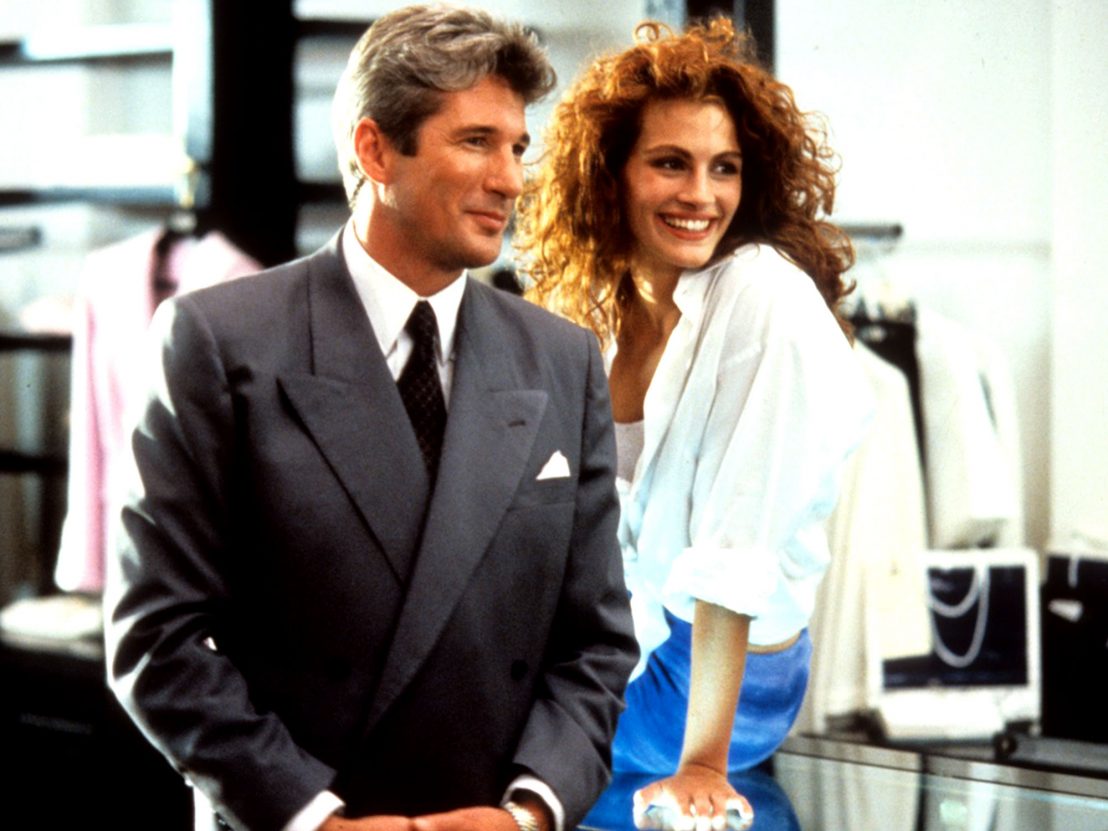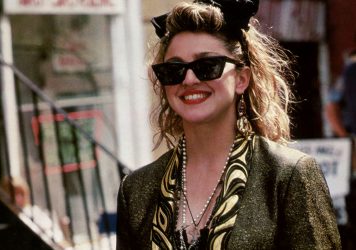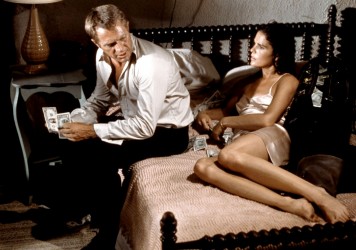
Over the past couple of years I’ve become acutely aware of just how moulded my late childhood was by the films I consumed before and during it. These were mostly mainstream, heavily clichéd teen films – ‘chick-flicks’ as they are often called.
If I’m honest, I do think a lot of those films are trash, but not for the reasons you might think. I think they are trash because, as a young, impressionable girl, they taught me to value myself based on the opposite sex, they taught me that pretty was a tax that I paid to exist, and worst of all they taught me that other girls were my rivals.
Full disclosure: I don’t have a daughter. When I am (hopefully) in the position of raising a daughter, I will determinedly avoid, as much as possible, letting her grow up believing these things. This begins with films – and this list is intended as guidance rather than over-protective, obsessive parenting.
Let’s start with two critically acclaimed classics: Breakfast at Tiffany’s and Pretty Woman. The latter is probably more obvious than the former, as plenty of parents will likely think twice before showing their child a film that includes prostitution. This is not my major concern though – rather, it is how the films end that I find distressing.
Breakfast at Tiffany’s follows the story of an independent woman trying to live her best life in New York, while trying not to be put in a cage by a relationship with a man. She does, however, socialise with the rich elite men of her circle, pursuing dreams of grandeur and comfort rather than love.
It must also be noted that her socialising and loudness irritates her neighbour, Mr Yunioshi, a horrendously racist representation of a Japanese man. The general reading of the storyline is that Holly Golightly thinks she is incapable of love, and this is why she doesn’t name her cat and ran away from her initial husband and children. In this way she is slightly villainised or made to seem irrational, then later convinced by Paul Varjack to commit to a relationship and “belong” to him.
Similarly, in Pretty Woman, Julia Roberts’ character Vivian fights for her place in the world working on the streets of Los Angeles to scrape together rent. She stumbles across Richard Gere and sees how the other half live, shows up some rude cashiers on Rodeo Drive and demonstrates her valuable, bubbly personality at a business dinner.
Essentially her experience teaches her that, with the right resources, she could do more. She decides to commit herself to improving her life when her time with Gere is over, and for years I had convinced myself that this is how the film ends. Alas, it is not. Both Holly and Vivian compromise themselves for a man. Who knows if their lives were better after this choice; what I do know is that I don’t want my daughter waiting for a man to save her.
It pains me to include Legally Blonde on this list. It was a favourite of mine for years and I once found myself motivated by Elle Woods. Now that I am older, I can see that the film is in drastic need of a privilege check. The storyline presents itself as a lesson of not underestimating someone because of the way they look: specifically, don’t assume someone is dumb or incapable of incredible achievements just because they are (conventionally) beautiful.
But that’s just it – Legally Blonde follows a long list of outdated conventions of beauty, wealth, race and social connections, through an elitist sorority system that will not be a reality for many young girls watching the film. Not to mention the hypocritical stereotyping of the pool boy as gay because “gay men know designers”, a nugget of information that does wonders to advance the court case. I will be here waiting for a more progressive and less problematic remake.
Angus, Thongs and Perfect Snogging is hugely popular among my millennial peers. The story follows a group of girls who are becoming more aware of their own sexuality and are trying to make it through school in the way they think is best: trying to get boyfriends. It’s essentially a massive shit-show of different girls being unnecessarily cruel to each other out of jealousy and a sense of rivalry that has been taught to them by other, similar films.
On top of this, their male counterparts could get away with murder. Robbie, the main love interest, gets away with cheating on his girlfriend, whereas other girls are branded “slaggy” for far less. Peter Dyer sexually assaults the protagonist, Georgia, pushing her into a bush trying to kiss her. He gets away with that too. I cringe to look back at my childhood and see how much this film influenced how I chose to act towards other girls and boys at the time.
Now, I can’t help but feel sorry for ‘slaggy’ Lindsay (as she is referred to throughout the film) and wish that I had better role models in films growing up. Preferably ones that didn’t seek to gratify males as a centric part of their existence.
Never have I been so jarred as when I watched You Get Me, starring Bella Thorne as the resident perpetuator of the “crazy girl” trope. It’s not that I found the film scary (although the fact that the characters claimed to be 17 in this film is slightly terrifying), more that I was so angry at Taylor John Smith’s character, Tyler.
At a party he gets into an argument with his girlfriend and they temporarily break up. Tyler bumps into Holly (Thorne), going clubbing, then they fuck and spend the weekend in a massive house she is supposedly looking after. Holly then becomes obsessed with Tyler. He repeatedly rebuffs her after making peace with his girlfriend. This includes at one point pushing Holly to the ground because she tells him she’s pregnant.
At no point in this film does it seem to occur to Tyler that Holly might have some mental health issues that might need addressing, or that he should be honest about what happened between them. Nah, she’s just crazy and irrational whereas he is the hero of the film. Men or boys of whatever age cannot be allowed to freely treat women as “crazy” as a tactic to get away with things, especially when there are serious mental health issues going down. This is more commonly known as ‘gaslighting’, a form of emotional abuse that often goes unnoticed due to its lack of physicality.
A more recent Netflix Original, Dude, made me hopeful that the genre as a whole was improving: a sex positive, honest film that didn’t deny women their bodily functions! Oh my! Making women and girls everywhere feel more comfortable about that one time they pulled out two tampons, stunned and confused. It also showed me the sense of sisterhood that Angus, Thongs and Perfect Snogging had so severely lacked.
But then, rape. A boy from a different school takes advantage of Lucy Hale’s character when she takes him “somewhere quieter” at a party. They’re both far from sober, but she is awake and functional and telling him “no”. He doesn’t listen, and this incident is almost completely skated over for the rest of the film aside from a well-deserved slap across the rapist’s face near the end. In my opinion, if you’re going to put rape in a film then it has to be dealt with in a much more considered way than this.
It’s dangerous because it’s triggering and doesn’t put enough weight on how wrong the rape was. The rape also is never reported – a topical issue at the moment – and this perpetuates its portrayal of “mild” rape. There is simply no such thing.
Obviously, this is a considerably condensed list, but as Hollywood continues to churn out such films, I still hold out hope of seeing more sisterhood on screen; more body positivity, and male characters not getting away with being terrible humans. A big ask, perhaps. More than anything, I want a female equivalent of Deadpool to show my daughter how to be a cool, smooth and sassy fuck-up. But that’s a whole other pipe dream.
Published 9 Jul 2018

By Leigh Clark
Does Madonna’s iconic pyramid jacket contain a hidden message?

Is it possible for women to love movies which promote a regressive, misogynistic worldview?

By Lara C Cory
There’s so much more to this lusty ’80s hit than meets the eye.